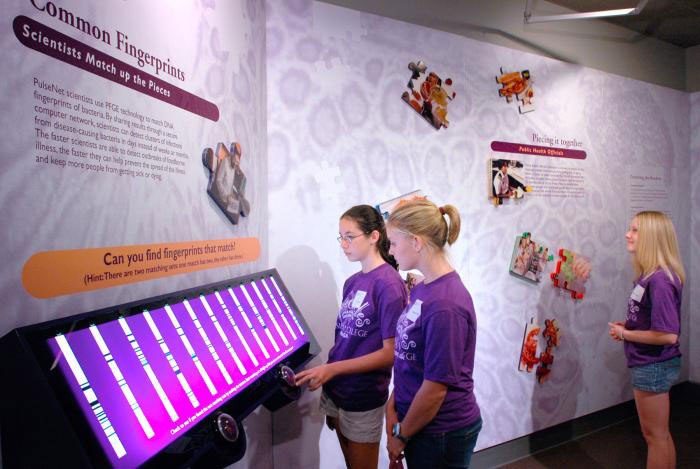
APHL advances laboratory practice by increasing the competence of laboratory staff, improving the capabilities of member laboratories and strengthening the credibility of results generated by food testing laboratories. The association created the following products and training material to assist members in meeting their food safety goals. It also compiled a sampling of federal websites, external publications and partner links that house content relevant to members' food safety work.
APHL Products
"Yardstick" Food Safety Self-Assessment Tool (login required)
Interim Guidelines for Submission of Enteric Pathogens from Positive Culture-Independent Diagnostic Test Specimens to Public Health, February 2016
State Legal Requirements for Submission of Isolates and Other Clinical Materials from Clinical Laboratories: A Review of State Approaches, January 2016
Salmonella Sustainability Model
Salmonella Serotyping in US PHL's White Paper
CIDT Factsheet
Lab Matters: Whole Genome Sequencing in Public Health
APHLTech Blog: NGS in Action – Genome Trakr
PulseNet Issue Brief April 2013
APHL/CDC Guidance for Isolation and Characterization of STEC 2009
APHL Position Statements
Legal Requirements for Enteric Disease Isolates
Use of Non-Culture Assays to Detect Foodborne Infectious Agents, February 2012
APHL Training and Conferences
APHL Webinar Series:
"The Updated Scoop on Poop-Culture Independent Detection Tests" (login required)
PulseNet Training Webinars
InFORM 2015
InFORM 2013
Culture Independent Diagnostics Forum 2012 Summary
Related Federal Webpages
FoodSafety.gov
CDC PulseNet
CDC CaliciNet
CDC Foodborne Outbreak Online Database Tool
CDC Estimates of Foodborne Illness in the United States
FDA Genome Trakr
FDA CORE
FDA Food
FDA Field Science Laboratories
Food Emergency Response Network
FSIS Laboratories
Partnership for Food Protection
External Publications
CIFOR Law Project Tools, September 2012
Bacterial Enteric Infections Detected by Culture-Independent Diagnostic Tests-FoodNet, United States, 2012-2014
Effect of Culture-Independent Diagnostic Tests on Future Emerging Infections Program Surveillance
Development and application of MLVA methods as a tool for inter-laboratory surveillance
Partnerships
APHL is an active member of the Council to Improve Foodborne Outbreak Response (CIFOR), which integrates local, state and federal efforts across many food safety disciplines to reduce the burden of foodborne illness in the United States. Three federal agencies and 12 national associations sit on the CIFOR Council, which interacts with the regulated industry through workgroups and projects.
CIFOR Lab-Epi Integrated Reporting software
CIFOR Specimen Collection, Shipment and Retention Guidelines for Foodborne Outbreaks of Undetermined Etiology (OUE)
CIFOR Guidelines for Foodborne Outbreak Response, Second Edition
APHL is
working with the Association of Food and Drug Officials (AFDO) and the Association of American Feed Control Officials (AAFCO) to strengthen and integrate food and feed testing laboratories. This effort is supported by a five-year cooperative agreement from the US Food and Drug Administration (FDA) to advance the Food Safety Modernization Act (FSMA).
ISO Training Resources
AFDO Food Laboratory Accreditation website
AAFCO Laboratory website